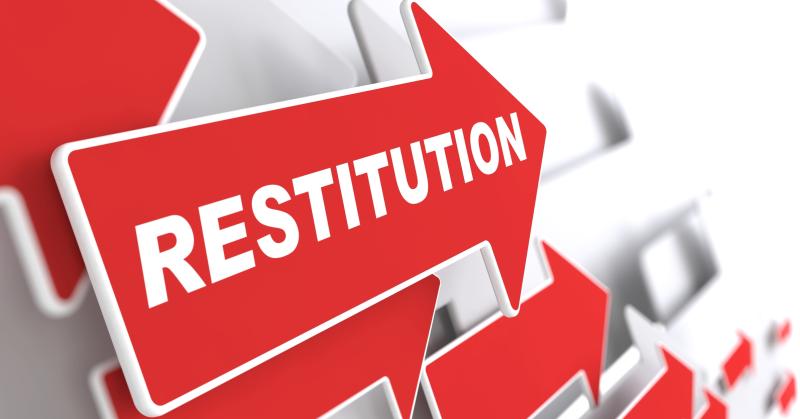What Is Victim Restitution and When Does It Apply?

What Is Victim Restitution and When Does It Apply?
In South Carolina, the legislature writes the laws, which contain the potential penalty ranges for each crime. However, the judge decides the penalty for each individual defendant after they plead guilty or are found guilty by a jury. While some defendants may only face jail and fines, others may need to pay court-ordered restitution to the victim of their crime.
However, not all crimes are awarded criminal or victim restitution; understanding how this works is essential. Therefore, this article provides a guide to everything you need to know for those facing a court order to pay victim restitution.
Victim Restitution: Understanding What It Means
Victim restitution, also known as criminal restitution in South Carolina, is a payment the court orders the defendant to pay an alleged victim. The defendant must follow the court order exactly, not deducting from the amount specified, or they can be held in contempt of court. Typically, when a defendant is ordered to pay restitution, they will also be on probation so a probation officer can monitor payment. Failure to pay can lead to a probation revocation.
Meanwhile, there are times when the defendant’s restitution does not cover the victim’s losses. In this case, the victim may be eligible for crime victim compensation funds designed to reimburse crime victims for losses. However, these funds often do not cover all of the victim’s losses, such as property damage.
The restitution can cover a wide range of losses, including economic losses such as medical costs and loss of income. It can also cover property damage, in some cases, loss of support, funeral expenses, mental health care, and counseling.
Cases That Incur Criminal Restitution
Typically, courts order restitution payments for theft crimes and crimes where there is property damage. For example, in a case where a drunk driver hits another driver, you may be ordered to pay for the damages.
In addition to theft crimes, violent crimes also often require restitution payments, particularly when someone suffers serious bodily injury. When the victim of the crime dies, their family is likely to get the restitution payment. This restitution payment can cover the victim’s medical expenses, lost wages, and, if they die, loss of support and funeral costs.
Furthermore, sexual assault and domestic violence cases can require that the defendant make a restitution payment. This payment can be used to cover the victims’ mental health care bills, including hospital bills, counseling, and out-of-pocket expenses.
Calculating the Amount of Restitution
How much a victim receives as restitution will depend on a few factors, including their total financial losses. In addition, it can depend on the defendant’s criminal history, the seriousness of the crime in question, and the victim. Often prosecutors use the victim’s statements during sentencing to show the court how much the defendant’s actions impacted them (the victims).
Victims can always file a civil lawsuit against the Defendant as well. If restitution was ordered as part of the criminal proceeding, any collection they received will be offset in the civil case.
Conclusion: What Happens When the Defendant Cannot Pay Restitution?
“If ordered by the Court, Victim restitution is non-negotiable, and failure to pay has serious repercussions,” says Christopher L. Jones, Attorney at Law, LLC. For one, the defendant will return to jail if they fail to pay the restitution, particularly if it is part of their probation.
On the other hand, there are times when the defendant genuinely cannot afford the full restitution amount. In that case, they should contact the court for payment options; the court may let them pay in installments. However, if the defendant intentionally refuses to pay or stops paying, the court can enforce collections to the point of seizing tax refunds.

Related Items:





